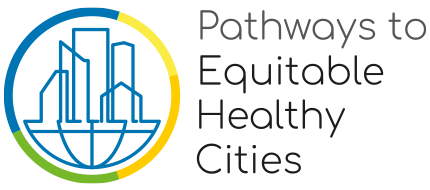Poverty and Inequality
The Poverty and Inequality group is working to define and develop metrics and measurements of socioeconomic status and poverty in cities within the Pathways study. We are focused on understanding the ways that these measures co-vary with the urban built and natural environments, and health. Using detailed data, the sociotechnical context, and engagement with policy partners, we aim to shape urban development and health policy to reduce inequalities in our partner cities.
Related Publications
Science of The Total Environment, vol. 875, pp. 162582, 2023.
Science of The Total Environment, vol. 833, pp. 155207, 2022.
Synthesizing the links between secure housing tenure and health for more equitable cities
Wellcome Open Research, vol. 7, iss. 18, pp. 18, 2022.
Remote Sensing of Environment, vol. 257, pp. 112339, 2021.
Global access to handwashing: implications for COVID-19 control in low-income countries
Environmental Health Perspectives, vol. 128, iss. 5, pp. 57005, 2020.
